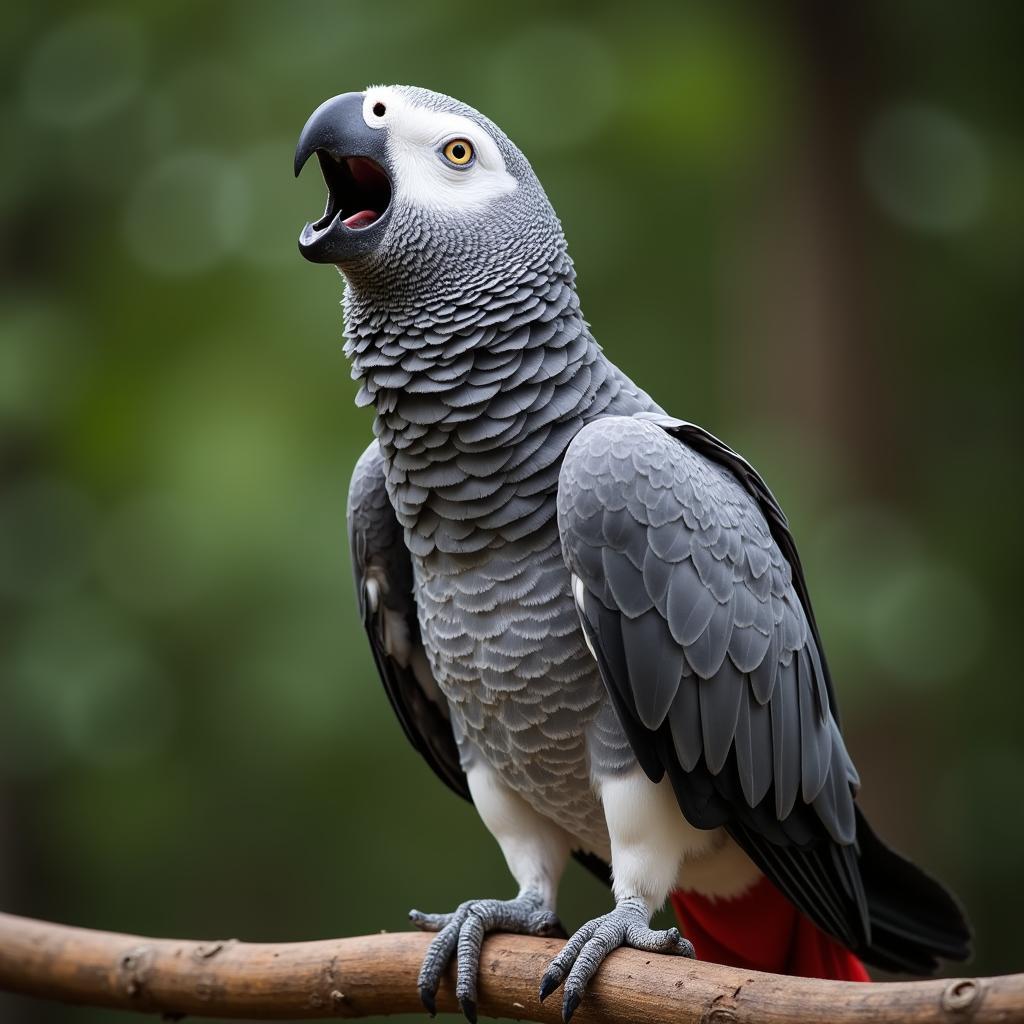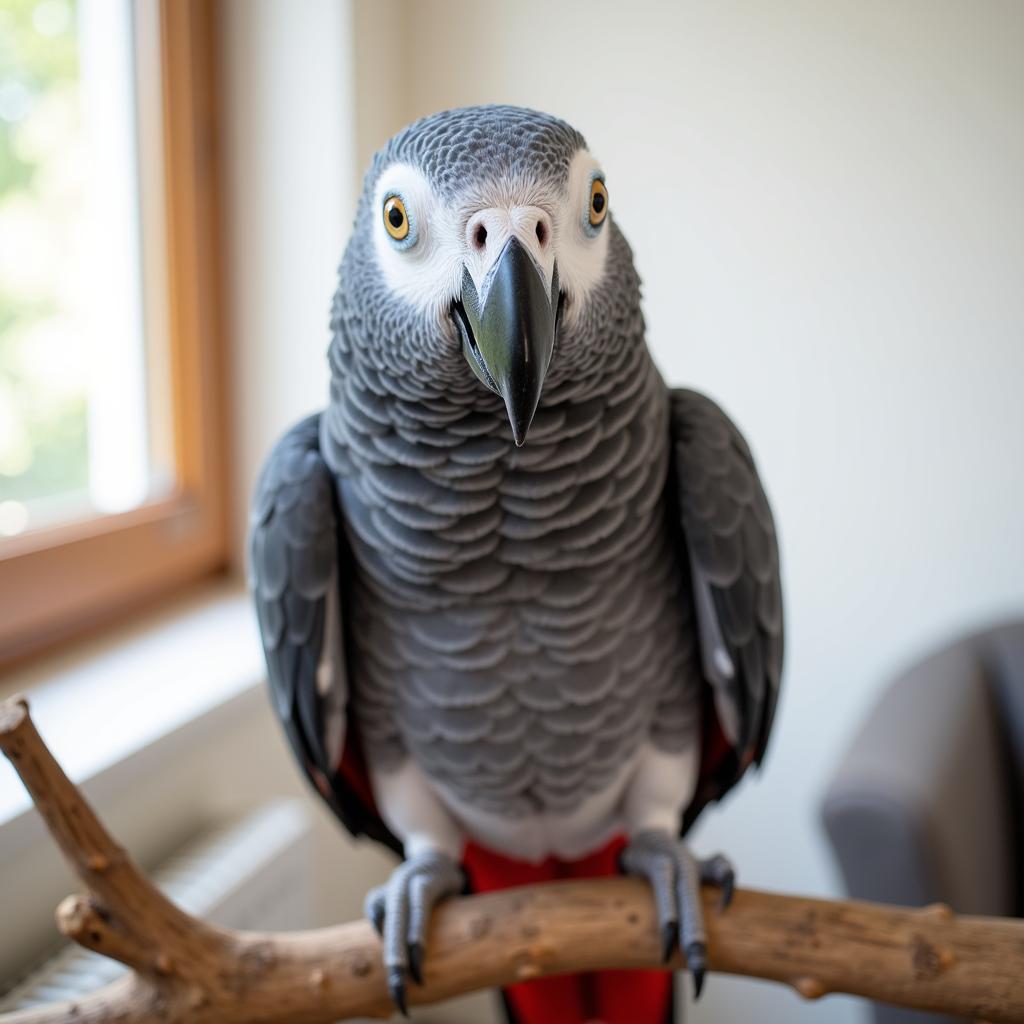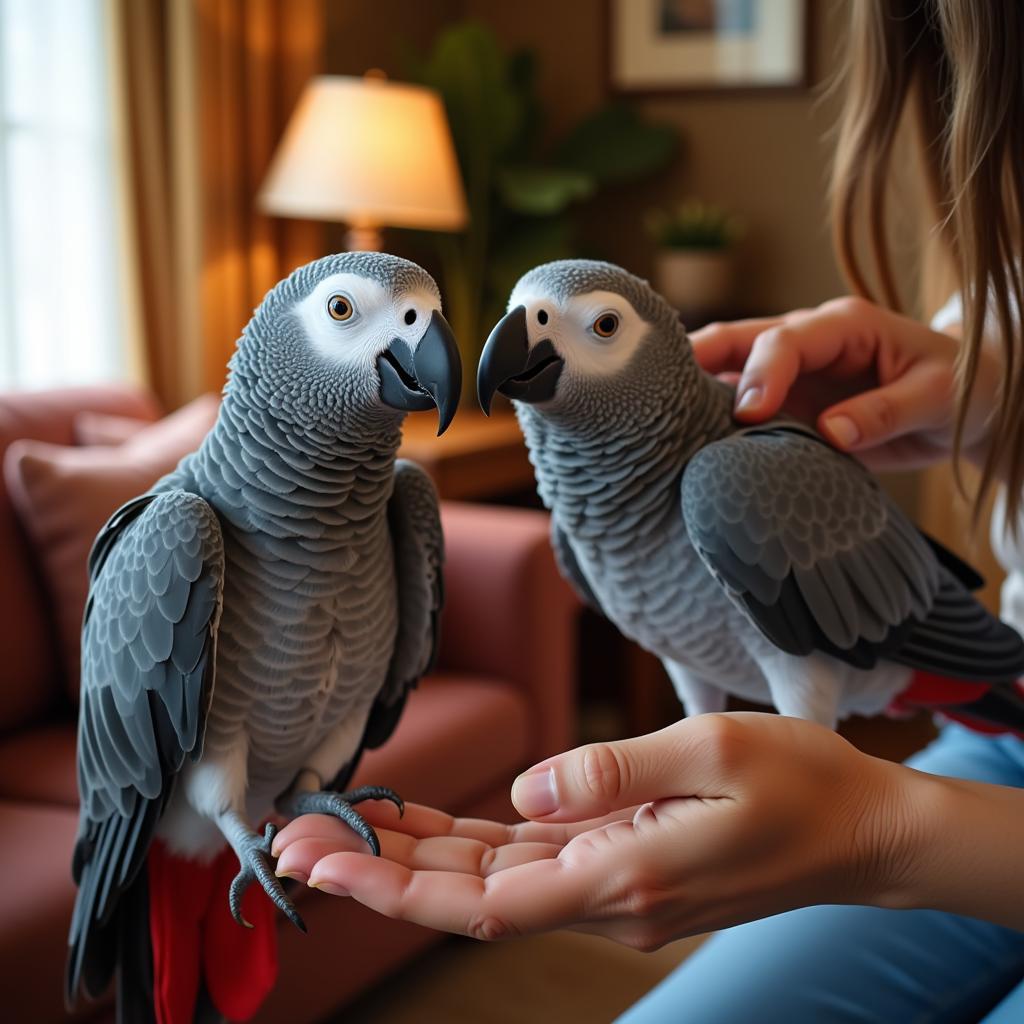Understanding African Grey Noises: A Guide to Their Meanings
African Grey parrots are renowned for their intelligence and ability to mimic human speech. However, their vocalizations extend far beyond simple repetition. To truly understand your feathered friend, it’s crucial to learn the diverse range of African Grey noises and their meanings. These vocalizations, from whistles to growls, provide valuable insights into their emotional state, needs, and desires.
 African Grey Parrot Vocalizing
African Grey Parrot Vocalizing
Deciphering the Language of African Greys
African Greys use a combination of sounds, body language, and even eye pinning to communicate. While each bird has unique vocalizations, certain noises are common across the species.
Common African Grey Noises and Their Meanings
- Whistles and Chirps: These happy sounds usually indicate a content and relaxed bird. Soft chirps are often used as contact calls, while loud, clear whistles can signal excitement or a desire for attention.
- Clicks and Beeps: These short, sharp sounds often accompany other vocalizations or actions, adding a layer of complexity to their communication. A click paired with a head bob might be a playful gesture, while a series of beeps accompanying fluffed feathers could indicate frustration.
- Growls and Hisses: These are warning signs and should not be ignored. A growl usually signals fear or territoriality, while a hiss is a clear indication of feeling threatened. It’s essential to give your parrot space when exhibiting these behaviors.
 African Grey Parrot Perched on a Branch
African Grey Parrot Perched on a Branch
- Screeches and Screams: These loud, jarring sounds are usually a sign of distress or alarm. They can be triggered by anything from boredom and loneliness to a perceived threat in the environment. Identifying and addressing the root cause of these noises is crucial for your parrot’s well-being.
- Mumbles and Mutters: These quiet, low-pitched sounds are often associated with contentment and relaxation. Your parrot might mumble to themselves while preening, playing with a toy, or simply relaxing in their cage.
The Importance of Context
While understanding the general meaning of African Grey noises is important, context is key. Observing your parrot’s body language, the environment, and your own actions can provide valuable clues about their vocalizations.
For example, a growl from a parrot with pinned eyes and ruffled feathers in a dimly lit room is likely a sign of fear. However, a similar growl accompanied by a puffed-up chest and head bobbing in a well-lit, stimulating environment might indicate excitement or playful assertiveness.
Building a Stronger Bond with Your African Grey
Learning to interpret your African Grey’s noises is an ongoing process that strengthens the bond between you. By paying attention to their vocalizations and observing their body language, you can better understand their needs, emotions, and even their unique personality.
Remember, patience and consistency are key. Each parrot is an individual, and it takes time to learn their particular vocabulary. With dedication and observation, you can develop a deep and rewarding relationship with your intelligent and vocal companion.
FAQs about African Grey Noises
Q: Why does my African Grey mimic my voice but not other sounds?
A: African Greys are highly intelligent and social creatures. They often mimic the sounds they hear most often, especially those associated with positive interactions like your voice.
Q: What does it mean when my African Grey grinds its beak?
A: Beak grinding is usually a sign of contentment and relaxation. It’s often observed before sleep or after a satisfying meal.
Q: How can I encourage my African Grey to vocalize more?
A: Provide a stimulating environment with plenty of toys and opportunities for interaction. Talk to your parrot frequently, sing songs, and play them a variety of sounds.
Other Resources
For more insights into African Grey behavior and communication, check out these articles:
 African Grey Parrot Interacting with Owner
African Grey Parrot Interacting with Owner
Need Help Understanding Your Feathered Friend?
If you have any concerns about your African Grey’s behavior or vocalizations, don’t hesitate to contact us. We’re here to help you build a strong and loving relationship with your feathered companion.
Call: +255768904061
Email: kaka.mag@gmail.com
Visit: Mbarali DC Mawindi, Kangaga, Tanzania
Our team is available 24/7 to assist you!



